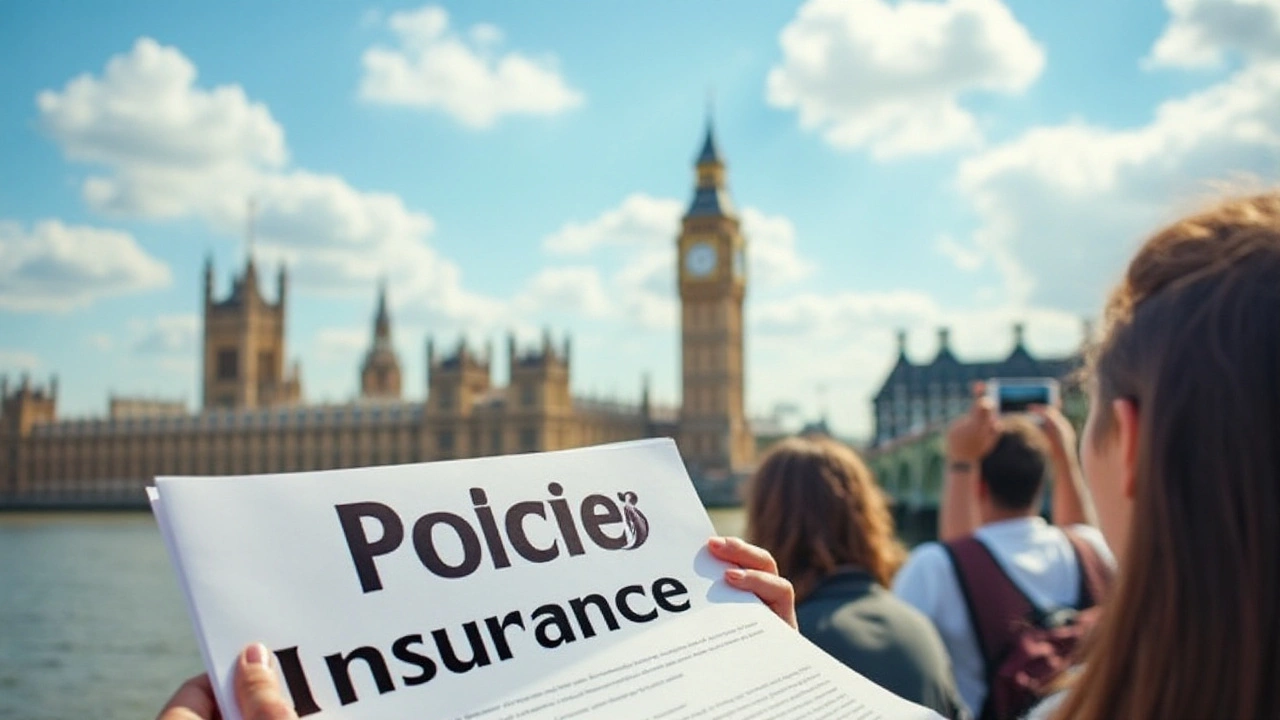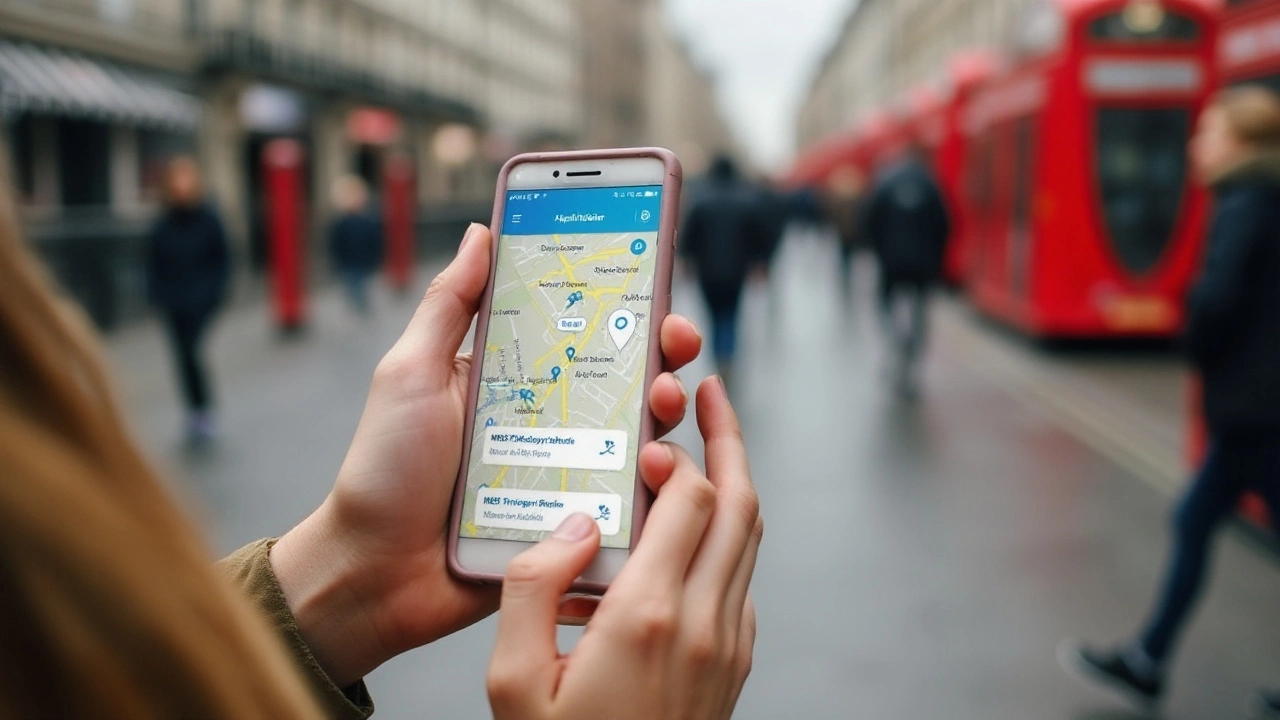 Jan, 20 2025
Jan, 20 2025
Visiting the UK is on the bucket list for many travelers, with its rich history, fascinating culture, and iconic landmarks. However, like every adventure, it comes with its set of challenges, one of which is understanding healthcare access.
Britain is known for its National Health Service (NHS), famed for providing healthcare that does not break the bank domestically. But can tourists benefit from this system without cost? This is a pivotal question for visitors who may face unexpected medical issues during their stay.
Navigating what the NHS offers to tourists, understanding eligibility, and recognizing the role of travel insurance will help you be better prepared. After all, knowing these details means more peace of mind while soaking in all the UK has to offer. Let's delve deeper to unravel the ins and outs of healthcare for travelers in the UK.
- NHS Basics and Its Services for Tourists
- Eligibility and Access: Who Can Get Free Healthcare
- Travel Insurance: A Vital Companion
- Practical Tips for Visitors Seeking Healthcare
NHS Basics and Its Services for Tourists
The National Health Service, or NHS, is a cornerstone of the United Kingdom's public service offering comprehensive healthcare to its residents. Established post-World War II, the NHS is funded by taxation and provides a broad spectrum of medical services at no additional cost to UK citizens and residents. Yet, when it comes to tourists, the situation is a tad more intricate. Tourists planning a trip to the UK need to understand that while the NHS is renowned for its exemplary healthcare, it does not extend free services universally. As a visitor, your eligibility for certain treatments will depend on various factors, including your country of origin, the type of care required, and specific international agreements that may be in place.
For instance, emergency services via the NHS are accessible to everyone, including tourists. If you find yourself in a dire situation, the dedicated NHS staff will provide necessary care without delay. However, for non-urgent hospital treatments, tourists might encounter fees. This aspect is particularly crucial to consider when planning for any potential health emergencies. A salient point to note is the reciprocal healthcare agreements the UK has with certain countries. Some international visitors can receive specific free treatments based on bilateral agreements or indeed may need to pay reduced fees. It's worthwhile to investigate if such an agreement exists between your home country and the UK before your visit.
According to the NHS website, "Citizens from EU countries with a European Health Insurance Card (EHIC) can receive discounted or sometimes free healthcare." This underscores the importance of leveraging any existing healthcare agreements your country might have with the UK.
Tourists are often advised to obtain appropriate travel insurance to cover healthcare costs not under the NHS. This can act as a backup for any unforeseen hospital visits or treatments not covered even under emergency NHS care. Moreover, travel insurance can typically offer advantages such as access to private healthcare facilities, quicker appointment bookings, and other perks that might make any medical emergency a smoother experience. Recognizing the significance of travel insurance should not be underestimated; it is as vital as packing your passport. An informed visitor will appreciate the intricate layers of the NHS and adjust their travel plans accordingly, ensuring they are fully prepared.
A thoughtful look at the NHS can also reveal particular free services that tourists might not expect. For example, visitors requiring urgent medication because of a pre-existing condition may find help in pharmacies across the UK though typically at cost. Yet, the NHS's patient-first approach means assistance in finding what you need swiftly. In terms of preventive measures, understanding where you can access medical advice without cost on platforms like NHS 111 gives tourists a valuable tool for minor ailments or queries. Leverage these aspects to ensure your visit to the UK is seamless, safe, and thoroughly enjoyable.

Eligibility and Access: Who Can Get Free Healthcare
When planning to visit the UK, tapping into its healthcare system is a concern that might rest at the back of many tourists' minds. The National Health Service, or NHS, provides healthcare services across Britain, but not everyone who sets foot on UK soil is automatically granted access without costs. So, who can actually benefit from free NHS healthcare while traveling?
Visitors must navigate a landscape shaped by a patchwork of agreements, regulations, and eligibility criteria. Firstly, citizens from the European Economic Area (EEA) and Switzerland are often at an advantage. With the European Health Insurance Card (EHIC), they can receive medical treatment on the same terms as UK residents. After Brexit, ongoing negotiations ensure that this crucial card remains in use for a transitional period. However, not all treatments might be free, and this often does not cover planned treatments, making private health insurance an advisable companion.
A quote from a Guardian piece captures the essence perfectly:
"Understanding the subtle nuances of the NHS's policies towards visitors is key – for spontaneous healthcare needs, it is invaluable, but for longer-term care or elective procedures, tourists must come financially prepared."For tourists from non-EEA countries, the rules are stricter. While emergency care at Accident & Emergency (A&E) departments is freely available to everyone, subsequent hospital treatments may not be covered. Visa regulations also play a role; those on certain long-term visas might have paid a healthcare surcharge which provides access akin to residents.
It's important to point out an interesting fact: dental, optometry, and certain prescriptions often fall outside free NHS provisions, even for eligible groups. Regardless of nationality, maternal care is freely provided to all, emphasizing the UK’s humane approach in healthcare. The following table illustrates the broad scope of services along eligibility lines:
| Service | EEA/Swiss Tourists | Non-EEA Tourists |
|---|---|---|
| Emergency Care | Free | Free |
| Hospital Treatment | Depends on EHIC | Usually Charged |
| GP Visits | Free/Low Cost | Usually Charged |
| Prescriptions | Charged | Charged |
Knowledge is power, and understanding what the UK’s healthcare system offers can help tourists navigate potential medical scenarios with confidence. While the UK healthcare system is remarkable in its reach and quality, having a backup plan through comprehensive travel insurance is always the smartest choice for the prudent traveler. With information at hand, visitors can enjoy their UK excursions with the peace of mind they deserve.

Travel Insurance: A Vital Companion
When exploring the cobblestone pathways of the United Kingdom, the prospect of falling ill or encountering an accident might be far from your thoughts. Yet, having a robust safety net in the form of travel insurance is more than a wise decision—it’s essential. Travel insurance effectively bridges the potential gaps left by the UK’s National Health Service, particularly since the NHS mainly supports its residents. Although some NHS services may be available to tourists, they often come with costs unfamiliar to those accustomed to systems like in their home country. Given this reality, a well-chosen travel insurance policy ensures that unforeseen health challenges don’t spiral into financial predicaments.
What makes travel insurance indispensable lies in its comprehensive coverage. A strategically selected policy offers protection for an array of eventualities, ideally covering medical expenses, costs related to trip cancellations or interruptions, and sometimes even personal belongings. For travelers visiting from outside Europe, this becomes doubly critical as agreements between certain countries and the NHS might exempt others from surcharge-free access. Surveying different policies is paramount, as they are diversified based on coverage scope, length of travel, and specific personal needs. It's reflective of the idea that peace of mind often accompanies those who prepare for any shift in their travel narrative.
One must further consider the diverse nature of travel insurance plans. For instance, basic coverage might include emergency treatments, yet miss out on adventure sports injuries—something worth contemplating if hiking in the Scottish Highlands or cycling through the English countryside forms part of your itinerary. Choosing an insurance plan, therefore, should not be rushed. Take the time to evaluate offerings, confirm their alignment with your planned activities, and ensure they provide services like emergency evacuation, which might be critical in remote areas. As Warren Buffett, the sage investor, accurately pointed out, "Risk comes from not knowing what you're doing." This rings true in the context of insurance—an informed choice at this stage may rescue a memorable journey from unwanted glitches.
Admittedly, budgeting for travel insurance can appear as an extra, perhaps unnecessary, expense to some travelers. However, consider that medical costs can quickly escalate. In a world where a single hospital visit could cost more than the entire travel budget, the importance of insurance cannot be understated. Statistics from the UK's Office for National Statistics have spotlighted instances where unprepared tourists faced steep costs, emphasizing the critical nature of travel insurance. Smart travelers turn these potential pitfalls into peace of mind by securing appropriate policies. This not only protects their health but ensures financial stability against a backdrop of unexpected ailments or mishaps.
UK healthcare intricacies make travel insurance not just an option but an essential companion. The key takeaway? A modest investment in travel insurance primes you to enjoy your trip undisturbed by potential health issues. Incidentally, if your journey involves multiple countries, multi-destination plans—or sometimes annual plans, if you travel frequently—might provide even better value. So, as you plan your UK adventure, keep travel insurance on your checklist. Savvy preparation today means unforgettable memories tomorrow.

Practical Tips for Visitors Seeking Healthcare
When you're exploring new terrain, your health should never become an afterthought. For visitors to the UK, understanding how to access UK healthcare can mean the difference between a smooth journey or becoming tangled in a web of confusion. To start, it’s important to recognize that while the National Health Service (NHS) is a renowned provider of healthcare services to residents, it operates under specific rules for tourists. At the outset, travelers should prepare by carrying a comprehensive travel insurance that covers any medical contingencies during their stay. The reason? While some services are free, others could surprisingly incur costs. Digging into the NHS specifics before travel can help in deciphering what's covered and what's not, sparking an informed decision about potential out-of-pocket expenses.
Know Your Healthcare Facilities
In the UK, healthcare facilities vary extensively, from sprawling hospitals to local General Practitioners (GPs). Familiarizing yourself with the nearest facilities, especially in high-risk activities like hiking in Scotland's Highlands or surfing in Cornwall, can be a lifesaver. Most tourists frequently use walk-in clinics for minor ailments. However, identifying the nearest Accident & Emergency department for critical issues is wise as emergencies are usually free of charge, though post-treatment services may not be. A helpful nugget is that not every pharmacy provides emergency supplies without charge, underlining the importance of bringing a robust first aid kit. Tablets for common issues like headaches or allergies may not always be provided without a cost, adding another layer to your well-thought-out travel checklist.Understanding NHS and Private Options
While NHS stands as the pillar of British healthcare, private healthcare options are sometimes quicker and laden with less bureaucracy — albeit for a fee. In a hurry? Book an appointment with a private GP. Some tourists have praised these clinics for their swift service, leading one traveler to express,"Private treatment was like flipping a switch; fast, effective and very stress-free when time was of the essence."But, remember that luxury comes at a price, so travelers must weigh the pros and cons based on their situation. Having travel insurance that covers both public and private care can be invaluable, making sure neither speed nor quality is ever compromised.
